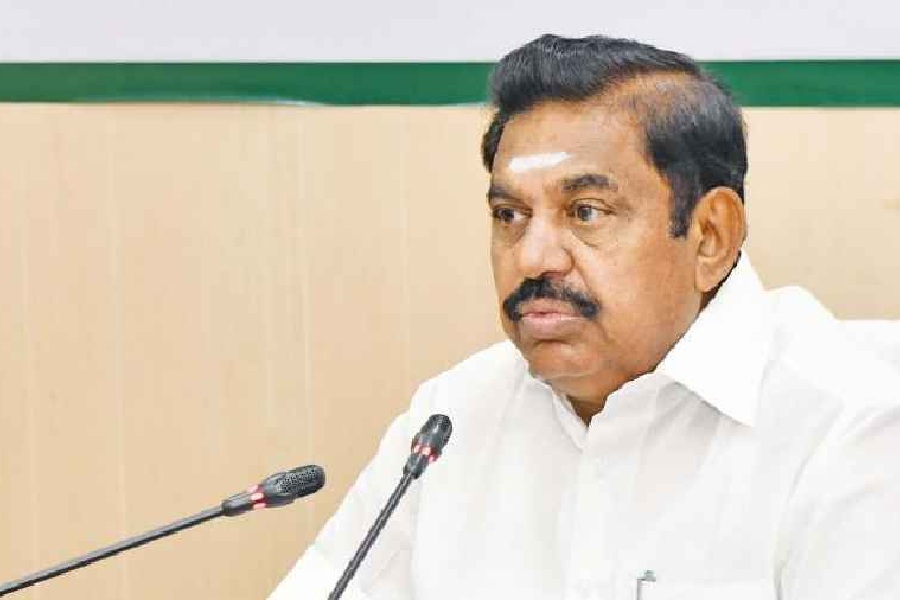Politics is often likened to a game of chess. However, the unfolding relationship between the Bharatiya Janata Party and the All India Anna Dravida Munnetra Kazhagam in Tamil Nadu is less of a balanced contest and more of a slow, calculated encirclement. Rather than a meeting of equals, it appears to be a gradual absorption that erodes the AIADMK’s identity. For many in Tamil Nadu, the AIADMK, under M.G. Ramachandran and J. Jayalalitha, was much more than a political party — it symbolised Dravidian pride, autonomy, and resistance. Today, this spirit seems to be slipping away, raising profound questions about power, agency, and cultural survival.
The concept of “asymmetrical alliances,” as described by the political thinker, Giovanni Sartori, provides a valuable lens through which to understand this dynamic. Such alliances are marriages of necessity rather than vision, dominated by the stronger partner. Tamil Nadu’s current political situation seems like a textbook example. On paper, the BJP’s benefit is clear: tapping into a state with a robust sense of regional identity and historically resistant to the Hindutva agenda. However, the reality has been less of a partnership and more like a subtle but deliberate takeover.
The recent history of this shift is telling. After suffering defeats in 2021 and in 2024, the AIADMK leader, Edappadi K. Palaniswami, publicly declared a break from the BJP — an unusual display of autonomy that excited supporters. But as elections approached, ‘Central pressure’, a familiar euphemism that usually signals behind-the-scenes coercion, including legal scrutiny or political threats, began to mount. EPS’s eventual reversal was not the outcome of strategic brilliance but capitulation. Publicly, the narrative was about coalitions and unity, but EPS’s stature was diminished. The BJP, particularly through Amit Shah, boldly claimed leadership of the upcoming government in Tamil Nadu, sidelining EPS’s voice and asserting dominance over the coalition.
This pattern is far from unique to Tamil Nadu. The BJP’s approach has been consistent in Maharashtra, Bihar, Punjab — forge alliances with influential regional forces, then leverage every instrument of State power and political influence to divide, subjugate, and absorb those forces over time. But the BJP’s modest gains in Tamil Nadu — a fiercely proud bastion of Dravidian ethos, unwavering in its refusal to surrender linguistic identity, rationalist tradition, and social justice values to religious nationalism — were less an expression of ideological acceptance and more a reflection of the AIADMK’s organisational strength and the residual loyalty of the Dravidian movement.
However, as months pass, the unique character of the AIADMK erodes further. EPS now increasingly echoes narratives dictated by Delhi. Within the AIADMK, factions and rival leaders like V.K. Sasikala, O. Panneerselvam, and T.T.V. Dhinakaran watch closely, sensing openings to exploit internal discord. Outside, the Dravida Munnetra Kazhagam mock the AIADMK’s weakened stance. The AIADMK is consistently found defending the BJP’s policies that stir public unrest within the state: whether supporting the controversial national NEET exam, justifying sluggish disaster relief efforts, denying education funds, or remaining silent in the face of threats to Tamil heritage sites like Keeladi.
Looking ahead, the fate Sartori warned of for junior partners rings ominously true. When one party dominates an alliance, the smaller partner risks not only losing power but also its identity and raison d’être. The cost, though, is not limited to the AIADMK; it strikes at the heart of Tamil Nadu’s tradition of political autonomy and cultural resistance.
The erosion of the AIADMK is not just the loss of a political option; it threatens the spirit of self-assertion that has been central to the state’s identity. Unless this trend is checked, the AIADMK may soon exist as a historical footnote, while the culture of Tamil autonomy could become yet another closed chapter in the annals of Indian regional politics.
P. John J. Kennedy is an educator and political analyst











